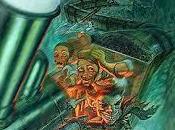 Rick Zullo is an American blogger, teacher, and relentless Italophile. He was born in Chicago, raised in Florida, but always dreamt of Italy. After a 17-year career in dentistry, he left the United States to live in Rome where he met his wife. He is now writing a series of ebooks which strive to decipher Italian culture for the English speaking world. The first of these, “Live Like an Italian,” is available on Amazon with “Talk Like an Italian” set for early July and “Eat Like an Italian” in August.
Rick Zullo is an American blogger, teacher, and relentless Italophile. He was born in Chicago, raised in Florida, but always dreamt of Italy. After a 17-year career in dentistry, he left the United States to live in Rome where he met his wife. He is now writing a series of ebooks which strive to decipher Italian culture for the English speaking world. The first of these, “Live Like an Italian,” is available on Amazon with “Talk Like an Italian” set for early July and “Eat Like an Italian” in August.
Rick’s blog is at rickzullo.com and you can also find him on Facebook and Twitter. He invites your comments, questions, and even criticisms.
You were a dentist in Florida, and then you sold your practice and started to study Italian language and literature. Why?
That was a moment of opportunity for me. Once my practice was sold, I could have either resumed/restarted my old life or started something new. I decided that the time was right to make a change. As a young student I had always ignored the arts, literature, languages, etc. in favor of the natural sciences. But as I grew older I began to feel this exclusion as something important missing from my life and so I grabbed this “second chance” to explore interests that satisfied me on a deeper, more personal level.
While studying, what did you like about Italian language and culture, and which Italian authors did you appreciate?
One of the first things that I discovered was the diversity of both the culture and the language. In the US school system, we barely touch on ancient Greece and Rome, but overall we don’t really study much history before 1776 and even then it’s a very US centric perspective. Furthermore, the study of languages is almost completely ignored (including the English language, by the way). When I began to discover Italian history and culture, I was amazed how different Venice is from Naples, how different Turin is from Sicily, in every way (culture, history, and even language).
As far as authors, we studied the classics, of course. But an American reading Dante is not the same as an Italian reading Dante. We can appreciate the historical significance, the structure, the symbolisms, the political and religious themes, but we can’t really appreciate the “music” of the poem. As my Italian improves, I’m beginning to get a small taste of this and it’s a great feeling to hear it like it’s supposed to sound.
Then, you decided to spend 6 weeks in Venice in our FAU Study Abroad Program. How did this experience affect your life?
At first, I wasn’t sure that I would feel comfortable being the only 40 year-old in a group of 20 year-olds, but that apprehension disappeared on the first day in Venice. And the professors did an incredible job of integrating the curriculum into the city itself. We studied the language, the literature and the history in the morning, and then in the afternoons we visited the places where it all happened. It leaves quite an impression and I can’t imagine a better way to know a place than to “live” its history on a daily basis.
Beyond that, the experience had a profound impact on my life in general. I had already left my profession the year before, but then I left the comforts of my familiar surroundings and allowed the atmosphere of Venice to really sink in. After about a week or so, the silence of that city fostered a type of silence in my own thoughts and I’ve never been so relaxed in my life. I’m not sure that you can appreciate that quality ‒ the serenity ‒ when visiting Venice for a day or two. You have to actually live there for a while to figure out the ways to avoid the crowds and the tourist traps, which is really quite easy to do after just a few days. Then Venice becomes quite another place that the tourist never sees. Unfortunately.
After your Venetian trip, you left your country and spent two years in Rome. Tell us about this: did you have a job?
Yes, immediately after leaving Venice I went to Rome where I met an amazing Italian woman (who is now my wife). I returned to the US, secured a visa, and then went back to Rome to live. Rome is a completely different place than Venice. Obviously it’s much bigger and more chaotic, but even beyond that it’s hard to believe that the two cities are in the same European country. This goes back to what I mentioned earlier about Italy’s diversity. From the history, to the food, to the language, to the people themselves ‒ everything about the two cities is completely different.
While in Rome, I did some work teaching English, although it’s not easy to find a proper job in this economy. You have to learn “l’arte d’arrangiarsi” in order to get by. But for people who are mother-tongue English speakers, teaching is one of the few jobs that offers plenty of opportunities.
[Seguiteci su Facebook, Twitter, Google+, Issuu e Pinterest]
What was the best and the worst of your Italian life?
The worst? That’s an easy one: the bureaucracy. Not only is there an overabundance of it, but nobody seems to understand it, least of all the people whose job it is to do so. The best of Italian life is, I think, the emphasis on enjoying the simpler things. I don’t want to get too romantic about this concept, or be the next foreigner to extoll the joys of “la dolce vita”, but as an American, you definitely notice the difference between “making a living” versus “making a life”. Ironically, this becomes most apparent once you return to the US. In Venice or in Rome it was enough to make a passeggiata and stop for an ice cream or a drink. In the US we seem to require constant (over)stimulation, which almost always disappoints us in the end.
You visited many places in Italy: which one you will never forget, and why?
Wow, that’s a tough one. Given that I’ve already talked about Venice and Rome, I’d have to say that Sicily leaves quite an impression. I especially love all the little Baroque villages in the southeast of the island ‒ Modica, Ragusa, Scicli, Noto.
For pure visual impact, it would be hard to beat Matera, the village in Puglia that’s built into the sassi. It evokes Jerusalem from 2000 years ago (which has been exploited in the movies). We stayed there for two nights and slept inside a cave. Even the churches aren’t “built” so much as they’re carved into the rocky hillside.
Why did you decide to return home?
This is the best question yet ‒ and I ask myself the same thing every day! But the bottom line is that I didn’t feel secure enough to raise a family there. Not being Italian, my job opportunities were limited in an already limited job market. The economy is really suffering at the moment. To the tourist, this may not be at all noticeable. But when you start talking to people you really get a sense of how serious it is ‒ and without much hope for the near future. The truth is, we’d happily return to Italy one day if the right situation develops. Not right now, but maybe in a few years. I’m always keeping my eyes open for opportunities and I’m still in touch with both my social and professional networks in Rome.
What should Americans learn from Italians and what Italians should learn from Americans?
Americans could learn a lot about being content with what we have and putting the brakes on ambition a little bit. It’s a national delusion of ours to always assume that we’re supposed to keep pushing harder to step over the other guy in order to get ahead ‒ whatever that means. We should pay a little more attention to things that really matter and stop competing in the sport of conspicuous consumption.
From Americans, Italians could learn more about developing a sense of public responsibility. Italians are great at looking after their families and their tight groups of close friends. But concern for the good of the general public has yet to catch on. That’s why it’s shocking for Americans to see vandalism and graffiti on historic monuments or garbage overflowing in the streets. When it comes to public spaces or institutions or national heritage, there is a prevailing feeling of “it’s not my responsibility” in Italy.
And now you are writing a blog (rickzullo.com) that became rapidly very popular, with stories and careful suggestions for American travelers in Italy. Historically Americans have always been attracted from Italy: why? And what are the big differences between the Italy Americans have in their mind and the actual one?
Yes, Americans are crazy for Italy and I think it’s because that, while the US has many strong points, Italy has everything that we lack: a rich history, unique culture, incredible food, and passions for the things that money can’t always buy. That said, I think that the stereotypes and clichés often get in the way of Americans truly appreciating Italy. Sure, it’s great to see the Rialto Bridge or Trevi’s Fountain, but if you stop there then you really haven’t seen Italy. The real Italy is in the local bar or the passeggiata or some little village in the countryside.
While it’s mostly true to say that Italians are passionate and appreciate the simple pleasures, etc., it would be very wrong to assume that they’re care-free and enjoying “il dolce far niente” all the time. For the average person, life in Italy is actually much harder than life in the US. The difference is that Americans have come to expect certain material things and feel entitled to a certain level of lifestyle, while Italians generally don’t expect to be promoted, advance their careers, or to “find America,” as the expression goes.
Rick, thank you. Just a last request: three basic suggestions for Italian tourists in America.
You must have a car to get anywhere, watch out for the air-conditioning, and bring your own food!
Media: Scegli un punteggio12345 Il tuo voto: Nessuno Media: 5 (1 vote)






